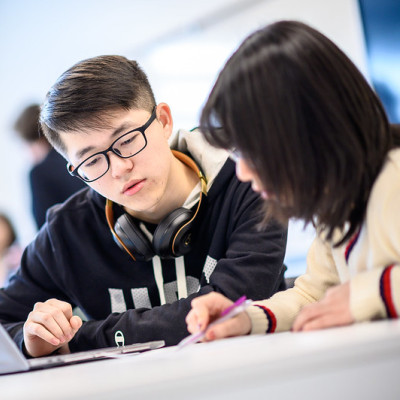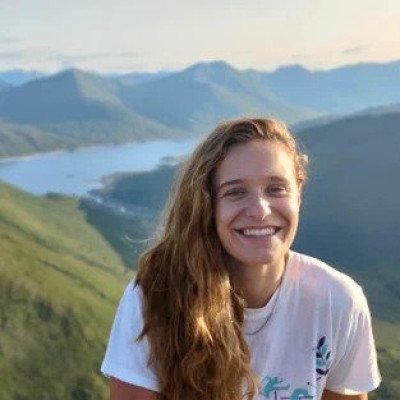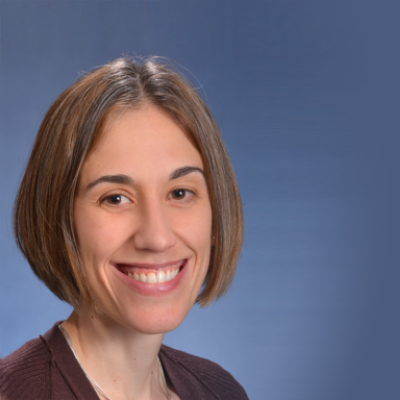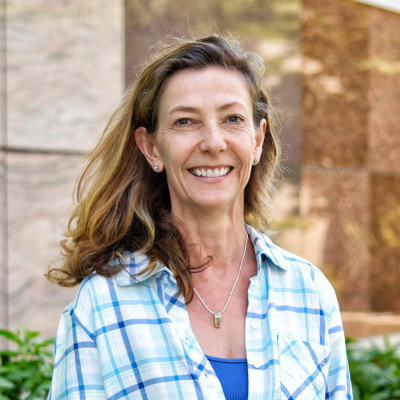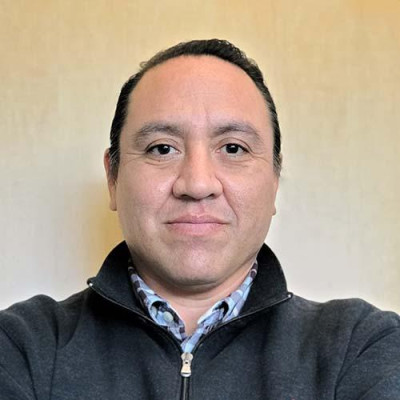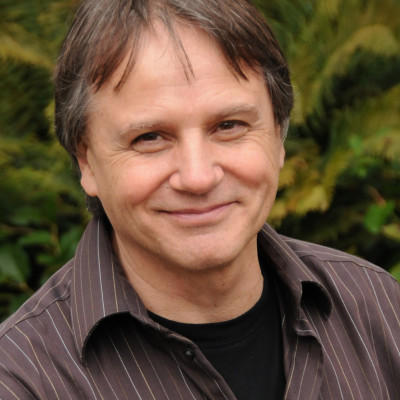News
Stay up-to-date with what's happening in EOAS
New interactive teaching and learning resources to explore climate and Earth science concepts
How can students be inspired and motivated to interactively explore complex concepts? The introduction of lightweight, focused, interactive learning apps or dashboards is part of the larger TLEF funded OCESE (Opensource Computing for Earth Science Education) project in EOAS.
Online simulations and datasets are not new, so what’s special about our dashboard learning apps? The answer is that they are designed to enable immediate exploration of a tightly focused concept and/or dataset. Some bring to life complex ideas, such as modeling the factors affecting global temperature, while others enable students to address meaningful problems by exploring and interpreting carefully curated existing data sets. Built largely by students and coded in Python, such dashboards can:
- Fill the gap between older paper-based resources and current feature-rich, or experts-only datasets and software tools;
- Enable un-guided or guided exploratory engagement with concepts or data;
- Complement a course’s rigorous treatment of a subject by enabling students to gain intuition through exploration of suitable simulations and datasets;
- Allow students at any level to focus on the problem or concept without the distraction of complicated new tools or larger-than-necessary data sets.
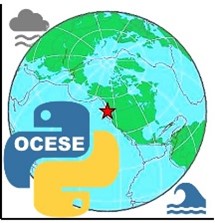 Over ten dashboards have been completed or are in progress. All are described briefly at our project website’s dashboard page. They are licensed for open use, and all will become formal, searchable UBC Open Education Resources (OERs). Find details on our one page project outline, or the emerging project website. Below are some snapshots of the dashboards and you can click on the link in the title or the snapshot to interact.
Over ten dashboards have been completed or are in progress. All are described briefly at our project website’s dashboard page. They are licensed for open use, and all will become formal, searchable UBC Open Education Resources (OERs). Find details on our one page project outline, or the emerging project website. Below are some snapshots of the dashboards and you can click on the link in the title or the snapshot to interact.
Two examples of process models or simulations for exploring concepts
1. Factors affecting global temperature: Contributions of several natural and anthropogenic factors to the global temperature anomaly are plotted for 1880-2005.
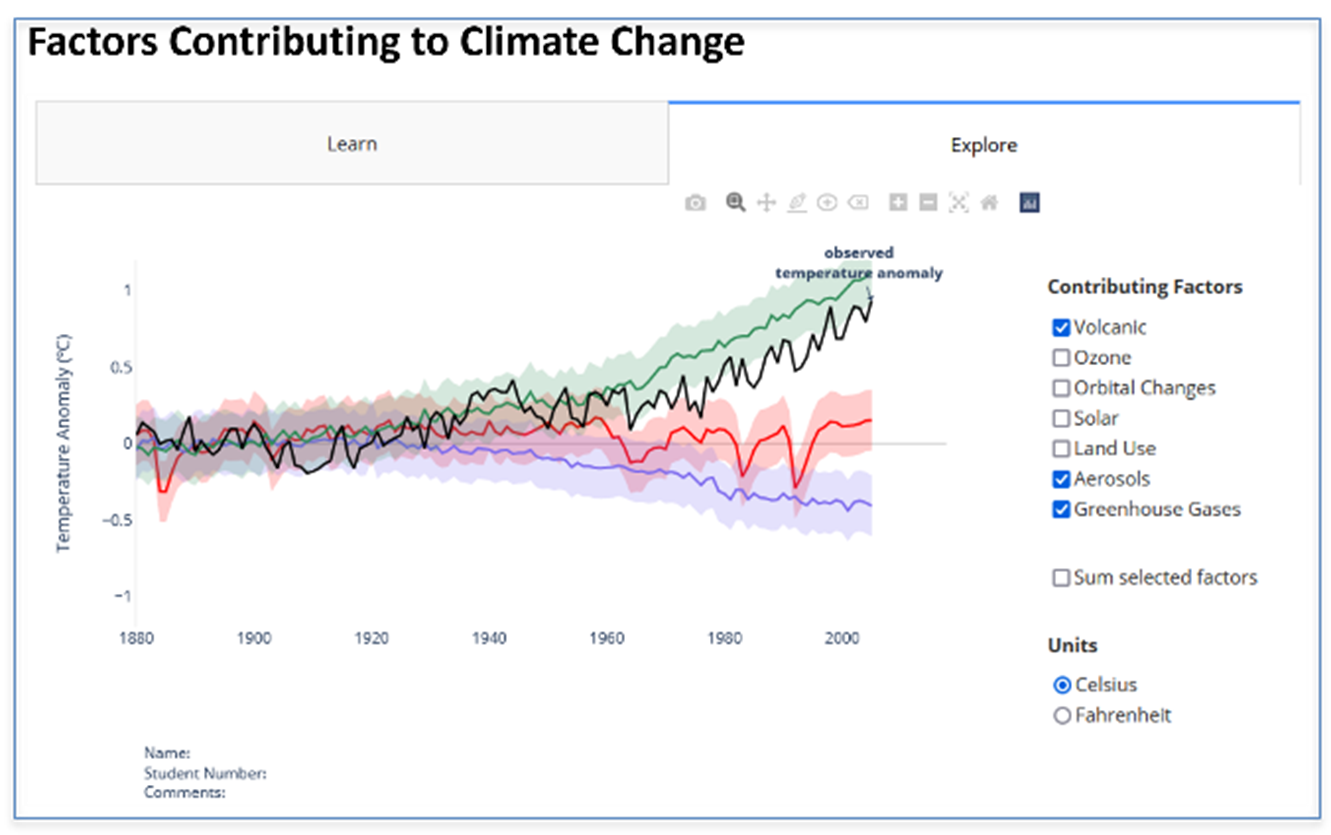
Piloted in EOSC 112, 116, 326, 340, 425. Links at “Global temperature” on our dashboards page.
2. Unconfined-flow: Interactive model of linear (“1D”) groundwater flow in an unconfined acquifer between two sources, with surface recharge included.
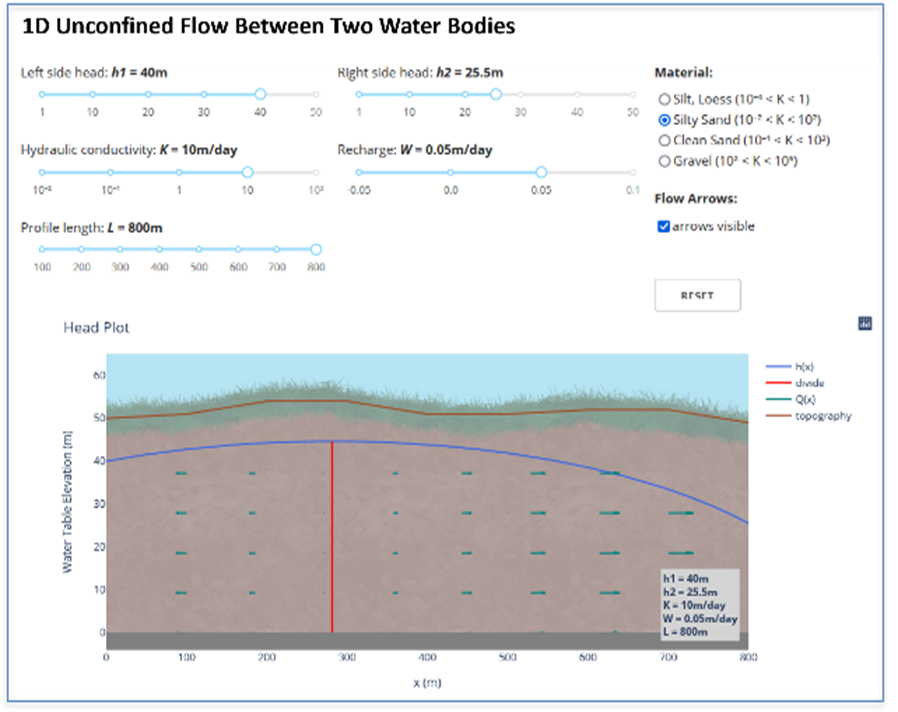
Piloted in EOSC 325. Links at “Unconfined-flow” on our dashboards page.
Two examples for exploring limited but real data sets
1. Oceanography dataviewer: observe and compare trace element and physical properties in the water column at selected locations in the Southern Ocean, the Atlantic and the North Pacific.
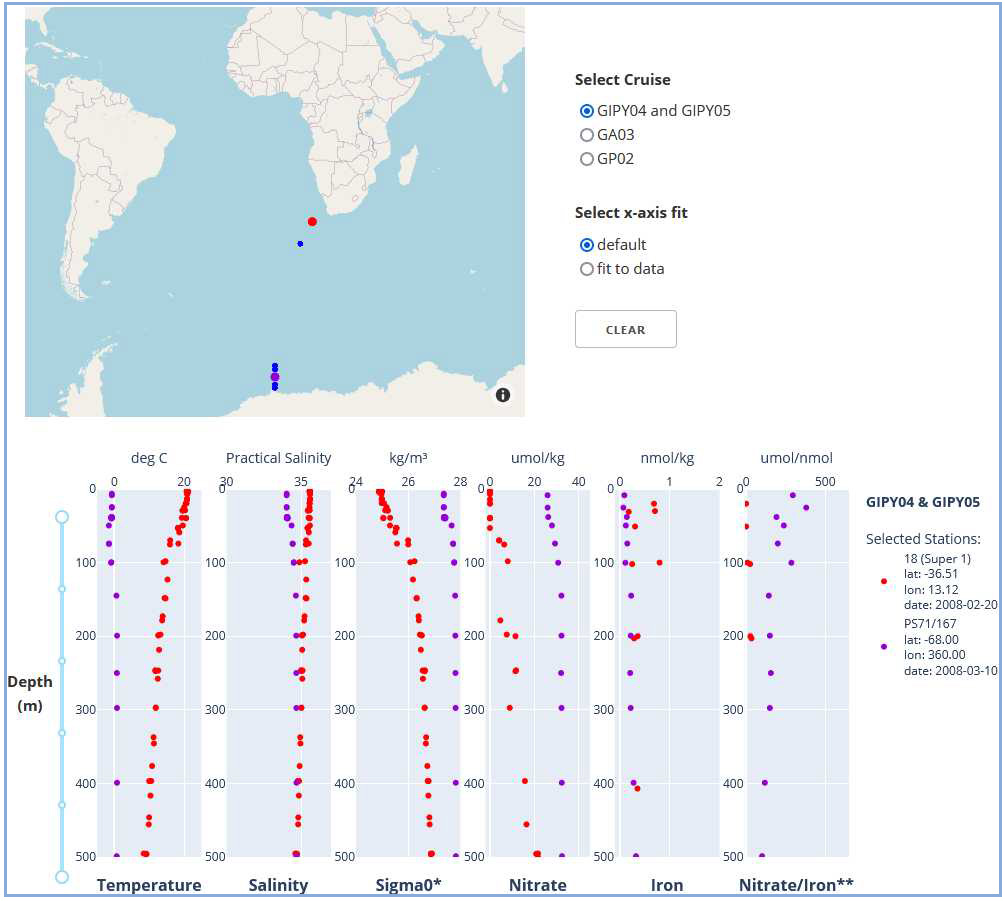
Piloted in EOSC 372. Links at “ocgy-dataviewer” on our dashboards page.
2. CO2 concentrations at Mauna Loa (Hawaii) and the South pole since 1958, including simple linear modeling.
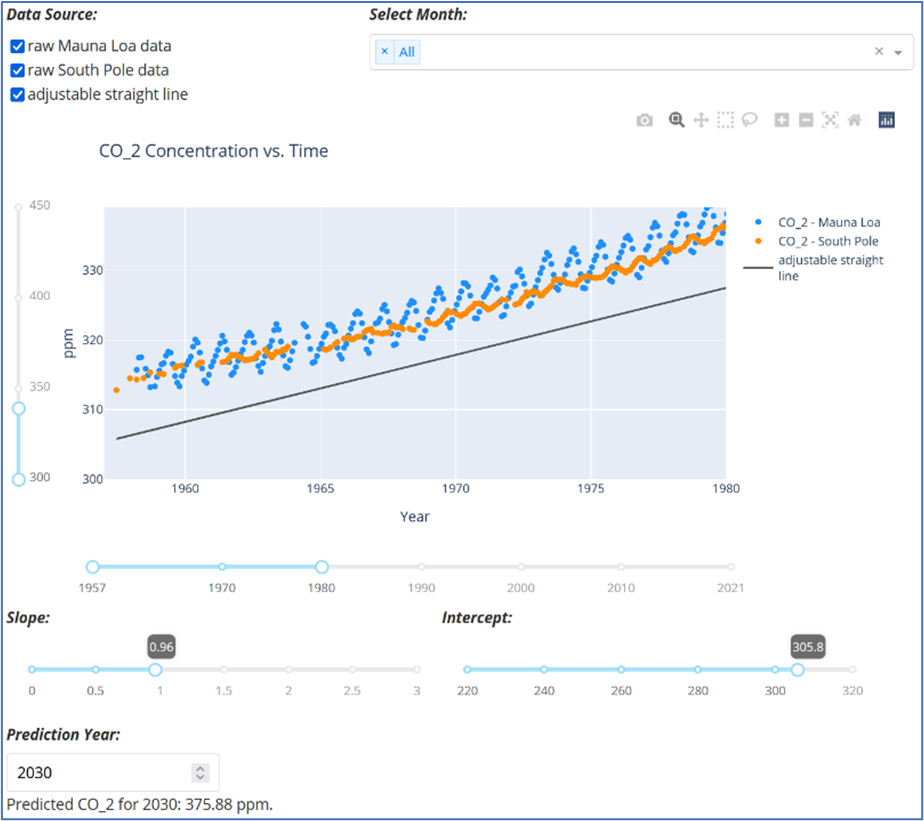
Piloted in ENVR 300. Links at “Atmospheric CO2” on our dashboards page.
Reactions from students and instructors
Student’s reactions via survey questions added to an oceanography course assignment (132 students):
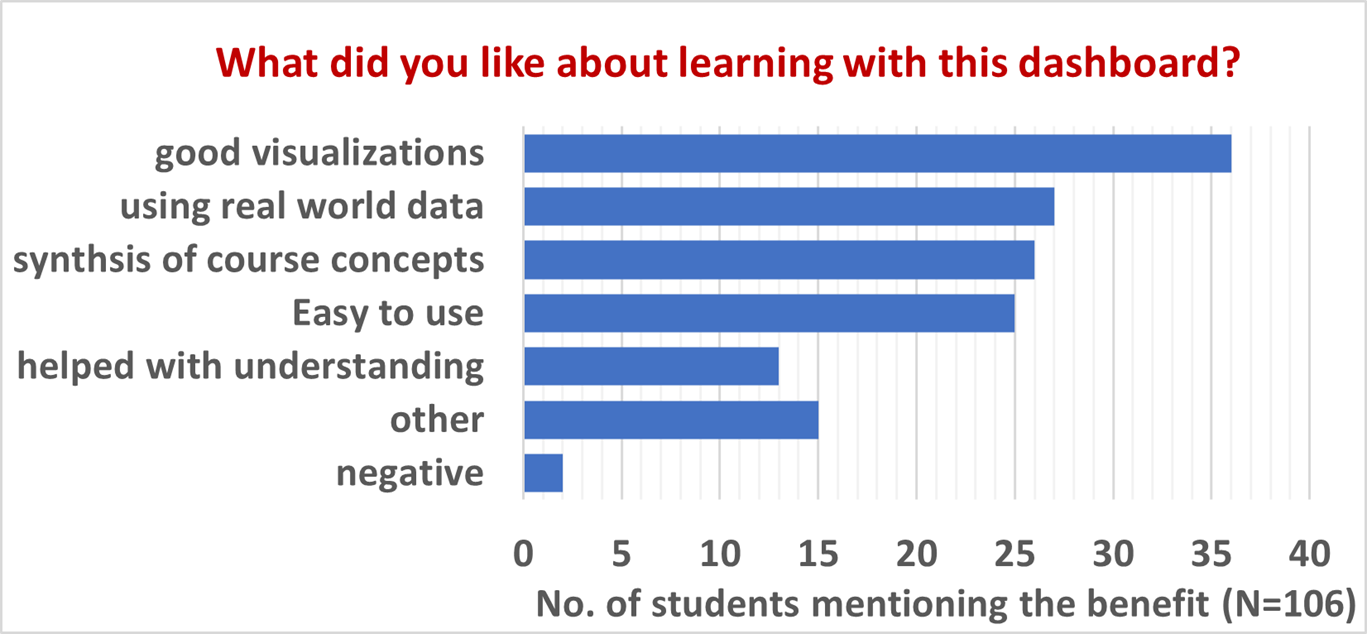
Examples of comments from students:
"I liked how the dashboard exercise applied various concepts using real data from the world's oceans."
"The online dashboard was quite easy to use and interesting as it allowed us to compare different nutrients/properties profiles in different oceans, synthesizing all the concepts in the course."
Instructor’s feedback (during design/build discussions):
"I am so impressed ... I love how (a) sliders constrain and adjust axes, (b) data at various real stations can be chosen on a map and compared, (c) results can be saved to submit for assessment. … thank you to the team!
Work in progress
We are actively searching for new ideas! Please contact one of our principles with ideas or questions (Tara Ivanochko, Phil Austin, Francis Jones, Lindsey Heagy). We'd love to discuss new dashboard ideas, ways of including new or existing dashboards into your lessons & assignments, or creative ways to have dashboards inspire your students and help them learn.
- As of March 2022, the OCESE project has 1 more year of funding. Existing dashboards will be fine-tuned based on experiences in use.
- Costs – i.e. time to develop: It may take anything from a few days (preferred) to extensive effort spanning several terms, depending on the complexity of the app. But an iterative design cycle is important, even with the simplest.
- The design cycle involves concept-design, prototype code, test, develop the learning task (in-class worksheet, take-home assignment, etc.), iterate, implement, gather feedback, improve.
- Theoretical framework: Essentially, “guided inquiry” is a good starting point. There is a fairly extensive literature on use of simulations in learning at all levels – especially from the PhET organization at U. Colorado, Boulder. See references on our project website. The main characteristic of most EOAS dashboards is that the code is kept relatively simple, and scope is tightly focused rather than trying to do too much.
- In EOAS, several third party dashboards are also in use, such as in EOSC 112 (IPCC climate atlas) and EOSC 340 (greenhouse PhET). See our list for some selected examples. Contact OCESE project principles for help with finding and implementing these types of 3rd party interactive learning resources.
- OCESE project documentation (in progress) includes the growing list of apps, and pages with dashboard development guidelines, ways of deploying dashboards locally or online, and some guidelines for teaching with dashboards.
Dashboard development credits
- EOAS student contributors: A. Loeppky, J. Byer, F. Rossmann, Y. Egorovo, Y. Kuzmenko.
- EOAS faculty contributors: Austin, Ivanochko, Jones, Heagy, Maldonado, Orians, Waterman, Sutherland, Orsi, Radic, Hodge, Ameli, Hickey.
- See also our complete list of all student and faculty contributors.
To learn more, and especially if you have an idea for an app that will inspire students and help them learn in EOAS courses, please contact any of the team members listed on the contributors page.
For more EOAS news items, please use the "search" and "filter" options at the top of our news and events page.
Meet Cara James - Geophysicist
Cara James is a new Geophysics PhD student within the EOAS department at UBC, investigating the fluid dynamics of particle clouds produced during deep-sea mining and modelling how they may impact ocean health. Cara moved to Vancouver in January 2022, having completed her undergraduate degree in Natural Sciences and masters in Earth Sciences in the UK.
Associate Professor Stephanie Waterman Awarded Charles A. McDowell Award
The Department is pleased to announce that Dr. Stephanie Waterman has won the Charles A. McDowell Award. This award, consisting of a medal and a certificate, is presented to an outstanding young faculty member who has demonstrated excellence in pure or applied scientific research.
Stephanie is a sea-going physical oceanographer interested in the fundamental role that ocean mixing processes play in climate dynamics, and how these mechanisms control the distribution of heat, energy, chemicals and marine organisms globally.
She approaches her research both through observational and theoretical perspectives, using targeted field observations, observational data analysis, idealized process modeling, analytical analysis and lab studies. Her main aim is to observe real-world systems, identify the important physical processes generating individual phenomena, and reduce their complexity to a useable and useful model. Read more about her research here.
Congratulations to Dr. Waterman!
For more EOAS news items, please use the "search" and "filter" options at the top of our news and events page.
Professor Catherine Johnson Awarded Killam Research Prize
The Department is pleased to announce that Professor Catherine Johnson has been awarded the Killam Research Prize, an award which recognizes the outstanding research contributions of faculty from across all disciplines. Prize recipients are celebrated for creating and disseminating knowledge that has a global impact.
Dr. Johnson’s work is more than global, and focuses on the history and evolution of terrestrial planets – namely, Mercury, Mars and Venus. She uses remotely-sensed geophysical data to better understand the history and evolution of terrestrial planets, and has worked on several NASA planetary missions, including the Mars InSight mission and the Mercury MESSENGER mission. Her current work aims to understand the magnetic fields of Mercury and Mars, including when and why they formed, their current state, and how the fields interact with the solar wind. “A huge unknown” she explains, “is the level to which magnetic fields protect a planet’s atmosphere from space weather”, a question with implications for human space exploration and habitability in this solar system and beyond.
Her work also focuses on planetary evolution and internal structure, and what that means for current planetary seismic and volcanic activity. Dr. Johnson works with a wide range of remotely sensed data, including altimetry, radar and gravity measurements. Data is collected by lightweight, low-power, instruments specifically designed to resist the challenges of operating in space.
“You’re required to be very creative, in a responsible way” she says of the intrinsic limitations on data quality and availability. Leaps and bounds in instrument technology between missions means that new data can improve on in resolution by an order of magnitude or more, revealing in detail features that may have previously taken up only a handful of pixels. “I love it; with each new mission to a planet or moon or asteroid you almost always see something unexpected.”
Looking forward, Professor Johnson is excited for multiple upcoming missions to Venus which will collect data on the composition and structure of the planet’s atmosphere and surface. She plans to answer questions about Venus’ suspected volcanic and tectonic activity using data previously shrouded from view by the planet’s thick, toxic atmosphere. “Venus was my first planet” she says, referring to the geophysical work she did on the planet during her PhD and postdoctoral studies. “It is so different from the Earth in so many ways, but would look equally habitable to our planet from a galaxy away – why is that?”
Though not directly involved in the upcoming missions, Dr. Johnson will have access to the resulting publicly available data. With datasets so sparse and expensive to obtain, collaboration is a driving force in propelling the field of planetary science forward. She stresses the key role it has played in her research group’s success: “this award is an honour, and it’s not about me; its about the people who I’ve had the privilege to work and collaborate with.”
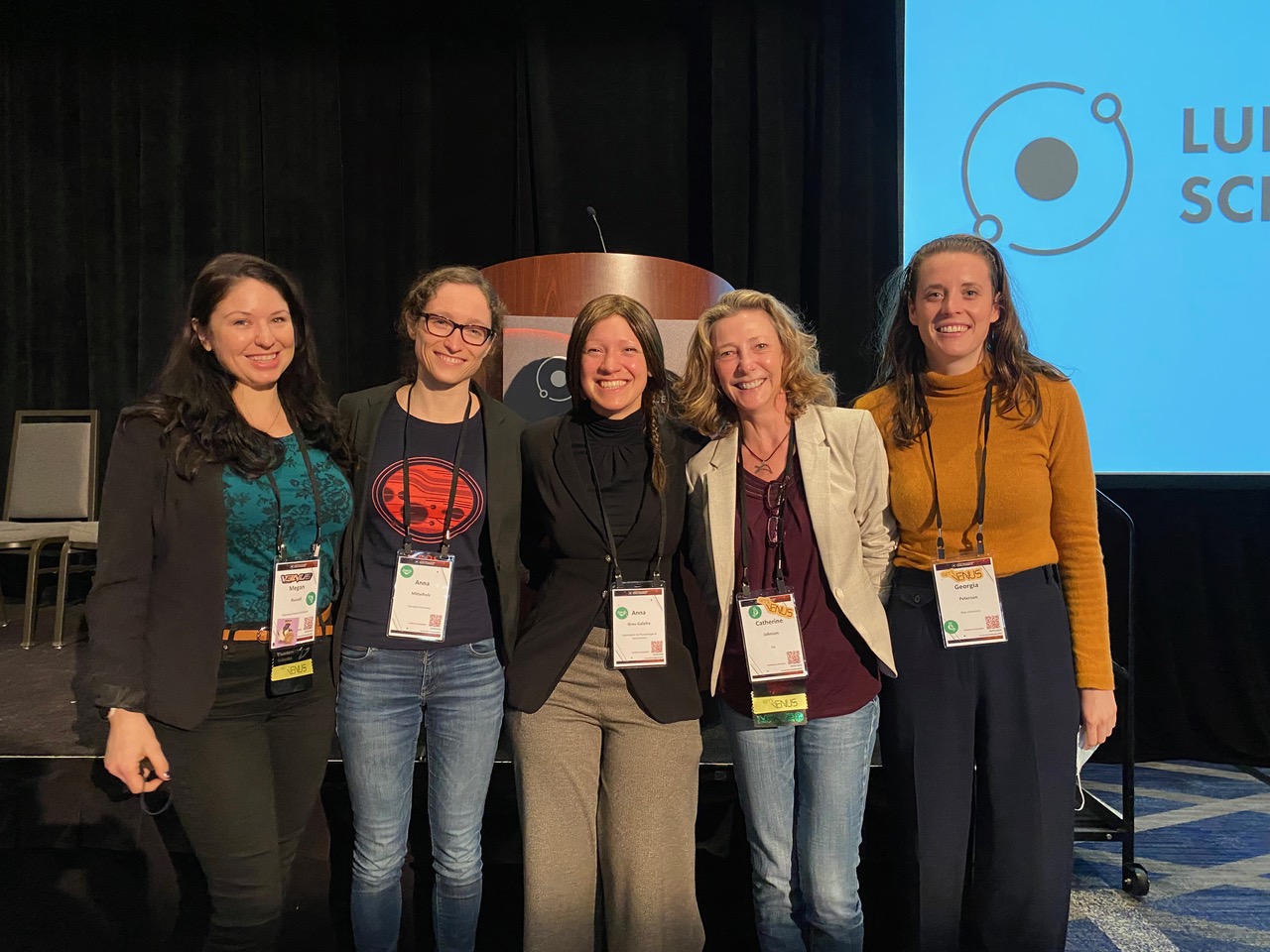
Professor Johnson (2nd from right) and recent research group members Megan Russell, Anna Mittelholz, Anna Grau, and Georgia Peterson at the Lunar and Planetary Sciences Conference
Dr. Shandin Pete talked about Indigenous scientific knowledge of hydrology and astronomy
Dr. Shandin Pete, Assistant Professor of Teaching in the Department of Earth, Ocean, and Atmospheric Sciences at the University of British Columbia, is investigating connections between natural phenomena and Indigenous scientific knowledge.
Check out the recent episode of the CBC radio show The Early Edition where Dr. Pete talked about Indigenous hydrology and astronomy.
To learn more about what scientific clues Dr. Pete found Indigenous stories reveal, check out the article by UBC News: Indigenous stories reveal the science of the world around us.
Dr. Pete is a hydrogeologist and science educator with interest in Indigenous research methodologies, geoscientific ethnography, Indigenous astronomy, social-political tribal structures, culturally congruent instructional strategies, and indigenous science philosophies. Most of his work in recent years has focused on community engagement to understanding shifts in an Indigenous paradigm of research for science knowledge production. This work has included extensive collaboration with tribal knowledge holders across Native communities and Indigenous academic scholars at institutions nationally and internationally.
Professor Curtis Suttle interviewed in the CBC radio show North by Northwest
Dr. Curtis Suttle (FRSC, Distinguished University Scholar) is a professor in the Department of Earth, Ocean, and Atmospheric Sciences at the University of British Columbia. Dr. Suttle was recently interviewed in the CBC radio show North by Northwest and discussed his research on how viruses are essential to our existence.
Research in the Suttle laboratory is primarily focused on viruses and their role in the environment. The work ranges from the characterization of viruses isolated from the environment to quantifying the role of viruses in microbial mortality and nutrient cycling. The techniques employed range from nucleic-acid sequencing to oceanographic sampling. Some current projects are examining viruses and their roles in the oceans, high Arctic, deep mines, aeolian dust, lakes and migratory-bird ponds.
Check out the podcast here: https://muckrack.com/podcast/north-by-northwest-from-cbc-radio-british-…
